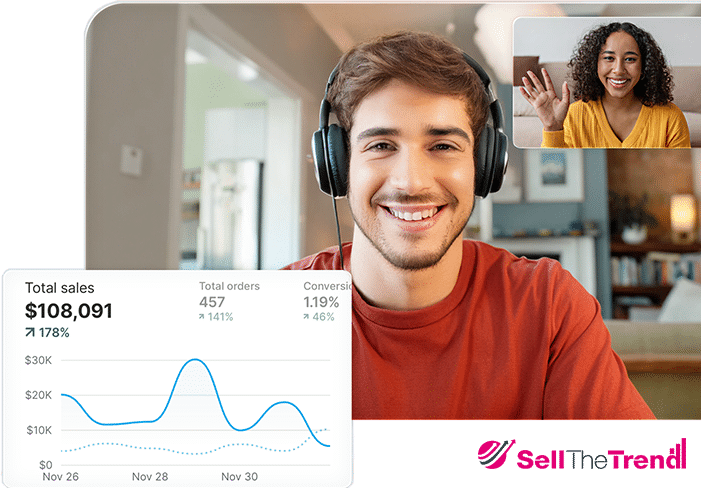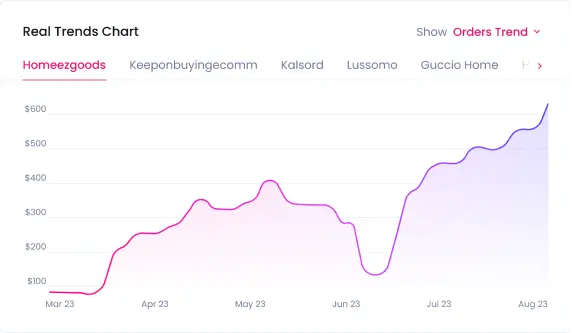Facebook Marketplace Fees – Boost Your Business Profits
Contents

In the ever-expanding bazaar of digital commerce, Facebook Marketplace stands out as one of the most accessible and bustling hubs for entrepreneurs. But beneath the familiar blue-and-white interface lies a crucial question every seller must consider: What are Facebook Marketplace fees, and how do they affect your bottom line?
Understanding Facebook marketplace fees isn’t just about deciphering numbers; it’s about mastering the economics of the platform, optimizing your listings, and sculpting a selling process that lets your business breathe profit.
Whether you’re a new dropshipper or a seasoned seller scaling your operations, the difference between good margins and great profits often comes down to how well you navigate the invisible tollbooths of this popular online platform.
Key Takeaways
- Facebook Marketplace charges a flat fee of 5% per transaction amount, or a minimum of $0.40 for individual items listed under $8.
- Understanding Facebook Marketplace selling fees, shipping fees, and payment processing charges helps protect your margins.
- How Sell The Trend can help you research and source winning products with optimized pricing strategies tailored to marketplaces like Facebook.
- How to avoid unnecessary chargeback fees and optimize Facebook marketplace listings to improve long-term profitability.
- How to leverage tools like automated product uploads, listing syncs, and daily analytics to make it easier to manage your Facebook Marketplace work efficiently.
How Does Facebook Marketplace Work?
The Marketplace Unveiled
Imagine a digital flea market visited daily by over a billion Facebook users. That’s Facebook Marketplace, a selling channel where local buyers meet sellers, haggle, message, and trade. Sellers can list everything from electronics and furniture to vintage shoes and handmade crafts.
Unlike traditional eCommerce platforms, selling on Facebook Marketplace can begin with just a few taps on your mobile app.
But how does the marketplace work from a business standpoint?

You upload individual items, assign them a product’s price, describe their condition, and wait for the right buyer to send a message via Facebook Messenger. It’s informal, community-driven, and powered by trust.
But as Facebook pushes Marketplace further into eCommerce territory, fees, purchase protection, and other eCommerce elements have become an essential part of the selling process.
What Are Facebook Marketplace Fees?
So here’s the unvarnished truth: Facebook Marketplace fees are simple on paper but carry subtle implications for your profit margins. If you’re offering shipping, Facebook charges a flat fee of 5% per transaction amount or a minimum of $0.40 for items priced under $8.
These fees are automatically deducted from your payout. No complicated invoices or hidden line items—just a clean subtraction before the money hits your account.
Let’s break it down further:
- Flat Selling Fee: 5% of the transaction amount
- Minimum Fee: $0.40 for individual items priced below $8
- Applies When: You offer shipping (not for local pickup)
- Not Charged: If you’re using Marketplace for local-only sales and accept cash upon delivery
While that might seem generous compared to eBay or Amazon, the hidden costs creep in through payment processing, chargeback fees, and shipping fees.
Additional Fees That Impact Your Profits

Beyond the obvious Facebook marketplace selling fees, there are other costs to consider, especially if you’re scaling or working with automation tools.
1. Payment Processing Fees
While Facebook doesn’t break down a separate fee for payment processing, it’s baked into the 5% commission. Still, delays can occur when your credit card company or card issuer flags transactions. Always verify that your account is set up properly with your payment method to avoid issues.
2. Chargeback Fees
When buyer disputes arise, say, the item wasn’t delivered or wasn’t as described, Facebook may issue a chargeback, and you’ll be hit with chargeback fees. This typically mirrors what a credit card company would charge for reversing a payment. To avoid this, be crystal clear in your descriptions, offer accurate photos, and always use tracking numbers for shipped products.
3. Shipping Fees
If you offer shipping, know that you’re either absorbing the shipping fees yourself or passing them to the buyer. These costs aren’t included in the 5% Facebook marketplace charge, so they can nibble at your margins if you’re not careful.
With these subtle yet cumulative fees, calculating your net gain from each listing sold becomes a critical task, especially when dropshipping, where the product’s price is often tied to small profit margins.
Facebook Marketplace Charge Tax – Should You Worry?
Ah, yes, the ghost in the machine: Facebook Marketplace charges tax. Facebook automatically calculates and collects sales tax on behalf of sellers in most U.S. states where it’s legally required. You don’t have to worry about setting tax rates manually, but it’s wise to note that tax is charged on the product’s price plus shipping.

So while you’re not paying out-of-pocket, it’s essential to make it clear in your listings that tax may be added to the final transaction amount. Transparency reduces the risk of buyer disputes and keeps your account healthy.
Subscription Fees & Listing Fees – The Good News
Unlike other platforms where subscription fees and listing fees are the norm, Facebook Marketplace is relatively light on such costs. There are:
- No subscription fees for regular sellers.
- No listing fees for creating Facebook Marketplace listings.
- You’re only charged when you sell items with shipping enabled.
That makes selling on Facebook Marketplace especially attractive for bootstrapped entrepreneurs or those testing new product ideas. Just list, connect, and sell.

However, if you use Facebook Shops or integrate Marketplace with a Shopify or BigCommerce store, you may encounter subscription fees or platform service charges depending on your plan.
Facebook Ads and Daily Budget Considerations
If you’re serious about selling, sooner or later, you’ll explore Facebook Ads. While these ads don’t affect your Facebook marketplace fees, they do impact your profitability. Set a small daily budget to test campaigns and track which products attract the most clicks.
Tools like Sell The Trend make this easier by identifying winning products that are more likely to convert, saving you time and marketing spend.
What Items Are You Allowed to Sell on Facebook Marketplace?
Before you dream of profits, make sure your items listed are compliant with Facebook’s Commerce Policies. You can sell things like clothing, electronics, furniture, pet supplies, home decor, and even digital goods. But you cannot sell:
- Alcohol
- Weapons
- Medical items
- Event tickets (in many cases)
- Animals
Non-compliance can lead to your Facebook account being flagged or suspended, and any listings being removed.
Tips to Boost Profits on Facebook Marketplace

If you’re aiming for profit, you’ll need more than clever product descriptions. Here are some expert strategies:
1. Master the Art of Pricing
Always factor in selling fees, shipping, and any marketplace fees before setting your product’s price. Tools like Sell The Trend help calculate ideal price points that leave room for profit.
2. Offer Shipping Strategically
Offering shipping expands your reach beyond your local town square, but remember to price accordingly. If your items are light, it’s easier to pass shipping fees onto the buyer.
3. Automate Your Listings
If you’re selling at scale, manual uploads can drain your time. With Sell The Trend, you can connect your product catalog and automate the upload process, saving hours while syncing prices and inventory across platforms.
4. Build Trust Through Communication
Use Facebook Messenger to answer buyer questions quickly. Polite, prompt replies can close deals faster—and reduce the chance of buyer disputes.
5. Diversify Your Channels
Don’t just sell on Facebook. Use Marketplace as one of several selling channels—like eBay, Shopify, or your own branded site. With the right tools, you can manage all of them from a single dashboard.
How Sell The Trend Can Help You Navigate Facebook Marketplace
Let’s say you’ve listed 100 products, but only 5 are selling regularly. That’s a wake-up call, not a defeat. Sell The Trend helps by:
- Identifying high-converting products with real-time data
- Automatically syncing your Facebook marketplace listings
- Helping you optimize pricing to cover fees and increase profit
- Simplifying product upload and shipping processes
In short, it turns the messy backroom of eCommerce into a well-oiled machine, allowing you to focus on what you do best—selling products and growing your business.

FAQs About Facebook Marketplace Fees
1. Does FB Marketplace charge a fee?
Yes. Facebook charges a flat fee of 5% per sale, or $0.40 for low-cost items. These Facebook Marketplace selling fees apply only when you offer shipping.
2. How do I avoid fees on Facebook Marketplace?
You can avoid Facebook Marketplace fees by using local pickup only and accepting cash payments directly. However, this limits your audience to your local area.
3. Is it better to sell things on eBay or Facebook Marketplace?
Facebook Marketplace is more casual and local, while eBay caters to a global audience with more competition. If you’re looking for no listing fees and quick sales, selling on Facebook Marketplace can be a better starting point.
4. What are the disadvantages of Facebook Marketplace?
- Limited support for buyer disputes
- Risk of chargeback fees
- Lack of advanced store customization
- High dependence on Facebook users’ location and behavior
5. How much are listing fees on FB Marketplace?
There are currently no listing fees for individual items listed on Facebook Marketplace. You’re only charged a fee once the item is sold and shipped.
6. How do you get paid on Facebook Marketplace?
Payments are processed via Facebook Pay and deposited into your linked account. The payout typically takes a few business days after confirming shipment.
Final Thoughts – Harness the Power of Facebook Marketplace with Sell The Trend
In the vast cityscape of digital commerce, Facebook Marketplace is a vibrant corner stall—a place where deals are struck, fortunes are made, and ordinary folks become savvy merchants. But to thrive here, you must learn the terrain: understand your fees, plan for your shipping, and guard your profits like a dragon hoarding gold.
That’s where Sell The Trend becomes your secret weapon. With intuitive tools for product discovery, automation, and marketplace integration, you gain the edge needed to sell on Facebook, navigate Facebook marketplace fees, and scale your business like a true eCommerce artisan.
Ready to turn your hustle into a high-performing machine? For further information, check out Sell The Trend today and let your journey through the Marketplace be a profitable one.








